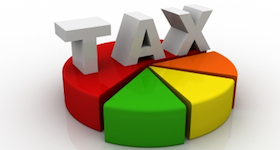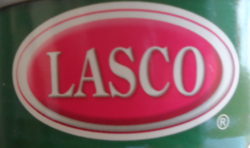KLE Group’s entertainment hot spots may be great places to let one’s hair down after a long day but are the shares, placed on the market late last year, good for one’s pocket and peace of mind? That was the challenge many investors faced when the company placed 27 million shares on the market, which was snapped up with great speed. But judging from the small 13 percent level of oversubscription and 198 applicants, seasoned investors had a different picture from that of the promoters and the principal owners.
In 2008, seven young Jamaican entrepreneurs are said to have had a world-class vision to create a unique blend in the local entertainment market-place, thus was born the hybrid lounge/club — Fiction — a new addition to Kingston’s night-life with its über chic design, lavish, intimate VIP booths, premium audio visual equipment and first-rate bar experience.
To rave reviews and patronage from locals and some of the world’s top celebrities, the club imprinted the Fiction Lounge brand on the entertainment industry. The early success attracted one of the world’s most marketable and fastest athlete, Usain Bolt and the Usain Bolt’s Tracks and Records restaurant with its perfect blend of what is termed a “4 dimensional experience of touch, taste, sight and sound” brought together in the same location as the Fiction Lounge.
Expansion | Having raised the desired capital, the KLE Group is to expand into other related ventures including a theme park and villa community on the north coast. The ventures include the following collaborative projects highlighted in the IPO.
“The Secret Room”, said by the promoters to be the first of its kind gaming lounge will be operated in conjunction with Supreme Ventures Ltd., and strategically positioned between Fiction Lounge and Usain Bolt’s Tracks and Records restaurant.
Night life in the second city, Portmore, will be catapulted into a new experience with a coliseum style nightclub to be named FAMOUS. KLE said that the more than 6,000 sq. ft. setting will be decked out with LED screens, projection walls and “unparalleled décor, sound and lighting” that will create an unforgettable nightclub vibe.
KLE Group plans to add BESSA, a lifestyle themed villa community to be built in Oracabessa in partnership with Sagicor Life Jamaica. The 8 acre ocean and river front property will be the site of 45 lavish living spaces with 1 bedroom swim-up suites, condos and 4 bedroom villas.
The expansion plans sound impressive but these are yet to come on stream even as the risk associated with them seems higher than for many other ventures in the country and certainly, the businesses operated by the majority of listed companies.
Priced for future | The numbers in the prospectus did not read impressively and nowhere therein could one find information to justify the $3.70 offer price with a PE ratio around 17. The best that could be gleaned was a price below $2 each which would have been more reasonable.
It was fully priced to sales, which came in at approximately one time sales. That may not have appeared bad and was around the trading point for most of the junior market stocks. However, the price to net book value was 18 times, representing a huge premium over all other junior listed stocks. Cargo Handlers was the highest priced in terms of net assets at 6 times, based on the 2011 audited results.
Pan Caribbean Financial Services (PCFS), financial adviser and broker, indicated how they arrived at the price but unfortunately, investors were not privy to that information as it was not included in the prospectus. A spokesperson for the broker provided some clarification on KLE’s valuation as follows:
- DCF (discounted cash flow) methodology was used in computation.
- A discount rate of 23% – 26% was applied with terminal multiple of 4.5 – 5.0.
- This methodology was chosen based on KLE’s immediate prospects as outlined by the group.
- KLE is a true start-up and as such forward looking.
- Based on conservative estimates, we see KLE having earnings of between $50 million and $60 million next year.
- Any potential earning was excluded from Usain Bolt’s Tracks & Records’ expansion and franchising.
- Given the above, post IPO P/BV of 2.9x and forward PE of 6x-7x.
The main issue with this valuation is that the stock market has not priced in 2013 earnings for the vast majority of stocks. So why should that be done for what many see as a very a risky investment in KLE? But even if the company hits the profit target, at the upper end, based on present valuation of stocks, one would be looking at a price around $5 for a gain of a third, several months down the road. Interestingly, subsequent to this issue, there were two others. One, Paramount Trading came out in December at a PE of 3 times earnings before tax, with the price of the stock moving up in value, and before that, Consolidated Bakery (Purity) came out with what then appears to be a PE of 8, more or less in line with the Junior market valuation but has hardly moved up on price, having been barely oversubscribed.
One off cost | One possible hidden factor that could help is the administrative costs for 2011, which has some one off expenses that should not recur and therefore, stands to boost the bottom line, all things being equal. In addition to income and expenses attributable to the restaurant and Fiction Lounge, there were other corporate expenses not directly related to either. These included professional fees, categorized as enterprise management expenses paid to Neustone (provider of managerial and administrative services) in exchange for business development in relation to new and existing business opportunities for the company as well as other services.
If one thinks that Usain Bolt’s name was worth a fortune then his association with the brand may have compelled one to invest. After all, he had indicated his interest in stepping up his investment in the venture. Time will tell if his athletic prowess will be reflected in his financial skill.
Another issue in the short run is that, so far, there is no evidence that the restaurant’s success to date has been significantly impacted by the worldwide name recognition of the world class athlete. Will it positively impact the fortunes of the company in the future? Only time will tell.
2012 Results | Subsequent to the above, KLE recently released full 2012 results with and reported a loss of J$13 million versus $7.7 million in 2011. In 2012 depreciation charge swelled to $20 million compared to $4.7 million in the previous year, while a $15 million reorganization cost was picked up in 2011. The stock which was issued to the market at $3.70 each last traded at $3.50 on April 4 but the offer is down to $3.20 with no bids as of April 24.









